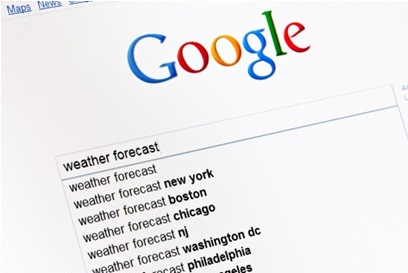Google, in its beautiful infinite wisdom, has decided to update its Paid Advertisement algorithms once more. This change gives us a further glimpse into what Google has in store for future users of its product, as well as what advertisements should be expected to be served on the SERP (Search Engine Results Page) for exact match searches.
What Is An Exact Match Keyword?
Exact match search (on the account owner’s side) is identified by two brackets around the keyword they would like to classify as such. Exact match keywords allow an Ad to be served on the SERP if the user who is searching inputs the exact keyword or keywords that are classified as an exact match in a Google Ads Account.

Initially, exact match Ad results were generated to the user searching only if the user inputs the EXACT keyword or phrase in the Google search bar. Over time, Google took this concept and decided to tweak it, adding what are known as close variants into the mix. This meant that even if the individual searching misspelled a keyword, used a plural form of a keyword, or had the search terms in a different order than what is designated by the advertiser’s exact match, the Ad would still be shown for the search result. Google even took this a step further and went as far as to account for function words (ex. do, that, and) when generating exact match results for a user.
What Changes Were Made?
So what has Google done for its third major update to this exact match concept? They went ahead and further adjusted the definition of a close variant. On September 6th, Google announced that searches containing the same meaning (including paraphrasing and implied wording) of an exact match keyword will produce the associated Ad on the SERP. For example, if an advertiser sets up an exact match keyword to show an Ad when a user typed “Orlando Hiking”, Google will now service exact match results that would normally show for searches like “Best Orlando Hiking Spots” or “Orlando Hiking Trails Near Me”. Google can produce these results confidently to the user as their algorithms are developed enough to understand that someone searching for “Orlando Hiking” is looking for trails to hike in the area.
What Do These Changes Mean For Everyday Ads Practice?
By changing the results for exact match keyword targeting, Google plans on continuing to develop its algorithms and AI (Artificial Intelligence) to try and eventually learn precisely what a user wants when searching on the Google platform. Instead of a user scrolling around looking for the best result, Google wants its AI to know which exact results to deliver to that user that will contain the most relevance.
Google’s most recent efforts of change also bring about new questions for advertisers in regards to their Google Ads strategies. Traditionally, when starting a Google Ads campaign, advertisers will create an extensive list of keywords for their campaigns in hopes of covering all bases of search terms for their product or service. Instead, advertisers can now condense that list due to Google’s advanced close variant algorithms and focus more on search terms that aren’t gaining as much current traction in their respective industry.
 What Is Google’s End Game?
What Is Google’s End Game?
The fruits of Google’s efforts will be to ultimately drive more clicks for advertisers, as well as take a further step into the future of AI and train Google’s algorithms to understand our searching needs in a better way. This continuous endeavor will eventually allow Google’s AI to become so intuitive with slang and jargon that any search performed will deliver results to the user with unquestioned satisfaction and relevance.





